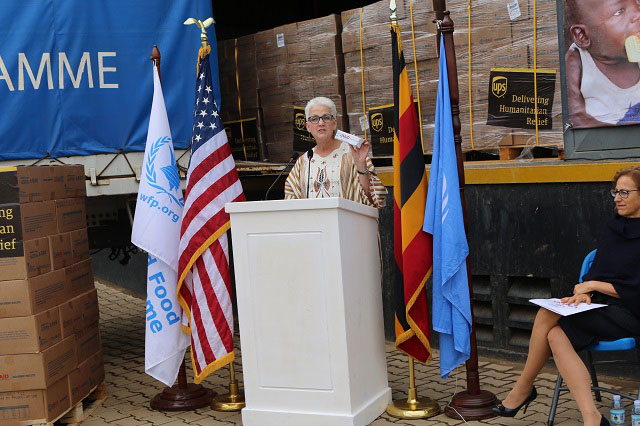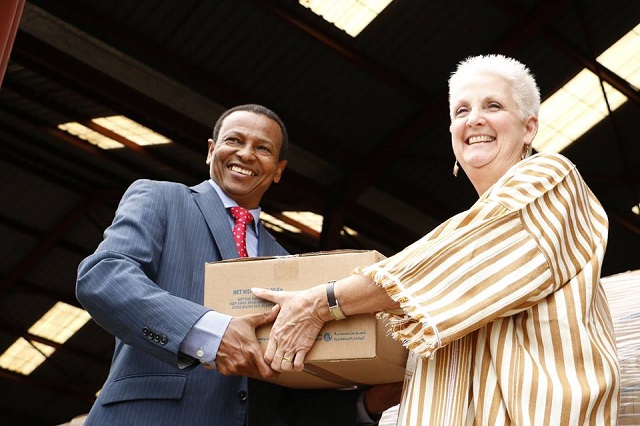
Kampala, Uganda | RONALD MUSOKE | Deborah Malac, the US Ambassador to Uganda has called upon more donors, especially countries and organizations that historically do not respond to refugee crises to step up and share the burden of caring for refugees in Uganda.
There are over 1.3 million refugees living in Uganda and many more are still crossing the borders into Uganda to escape the horror in their country looking for protection, hope and help in Uganda.
The ambassador was speaking at the handover of a 150 metric tonne consignment of high energy biscuits for South Sudanese refugees at the World Food Programme warehouse on Aug.30 in Kisubi along Entebbe Road.
The high energy biscuits enable the UN’s World Food Programme to assist refugees immediately on their arrival in Uganda, before they are able to cook for themselves.
The biscuits are a fast, immediate and convenient means of assisting them at the border before the government transports them to the transit centres.

The American government, which remains the biggest donor to Uganda’s refugee response, donated the biscuits through the United States Agency for International Development (USAID)’s Office of Food for Peace. According to USAID, the US contributes 75% of the required high energy biscuits for the refugees.
Malac said much as the American people and the US government will always do their part to respond to humanitarian needs in Uganda, as they have done, year-in year-out around the world in the face of the refugee crises, America cannot do this alone.
“We cannot do this alone; we cannot be the only partner,” she said, “It is absolutely critical that others step up and do their part. In particular, we need those countries and organizations that historically do not respond to refugee crises.”
In June, the UN backed Uganda in hosting the first ever Refugee Solidarity Summit with the aim of raising up to US$ 2 billion every year over the next four years in order to ably respond to the looming humanitarian challenge in Uganda.
However, only US$ 358 million was raised yet to date, humanitarian agencies have received just 21% of the US$ 674 million needed in 2017 and the UNHCR alone currently has a funding gap of more than US$ 250 million.
Malac said the fact that one million South Sudanese refugees are living in Uganda was unacceptable.
 The Independent Uganda: You get the Truth we Pay the Price
The Independent Uganda: You get the Truth we Pay the Price


